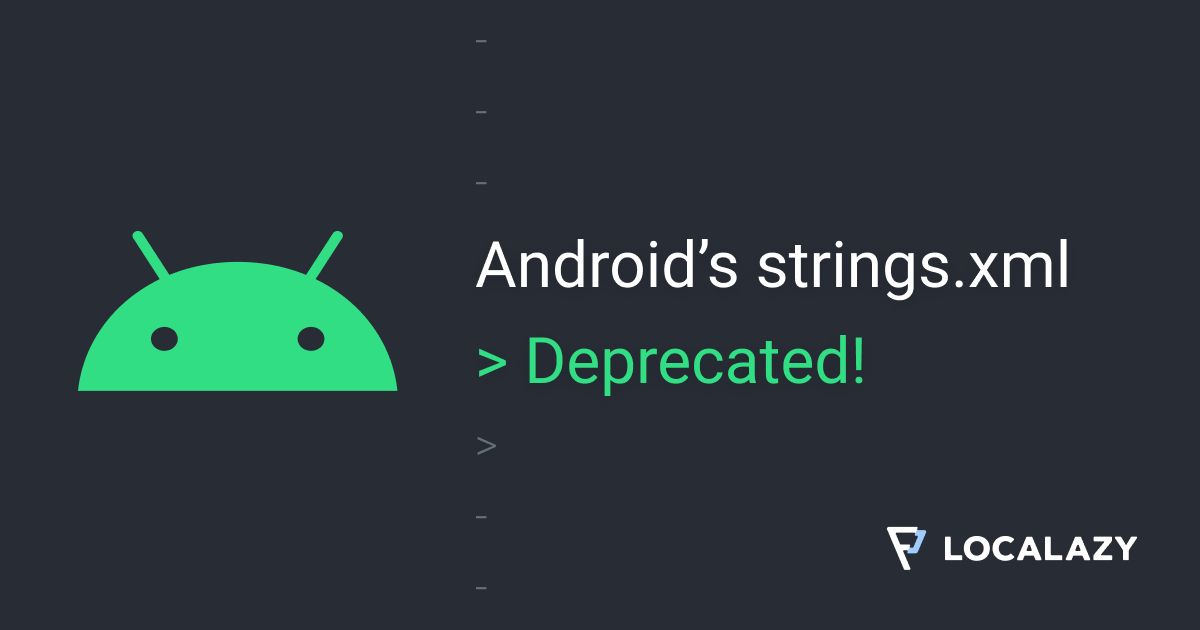4,562 reads
Don't waste your time handling Android's strings XML files manually!
by
December 1st, 2020
About Author
Localize your app the modern and developer-friendly way!
Comments
TOPICS
Related Stories
Java bits: 0xFF and 0xFFL
Oct 31, 2017
10 good rules for bad App
Apr 03, 2016

